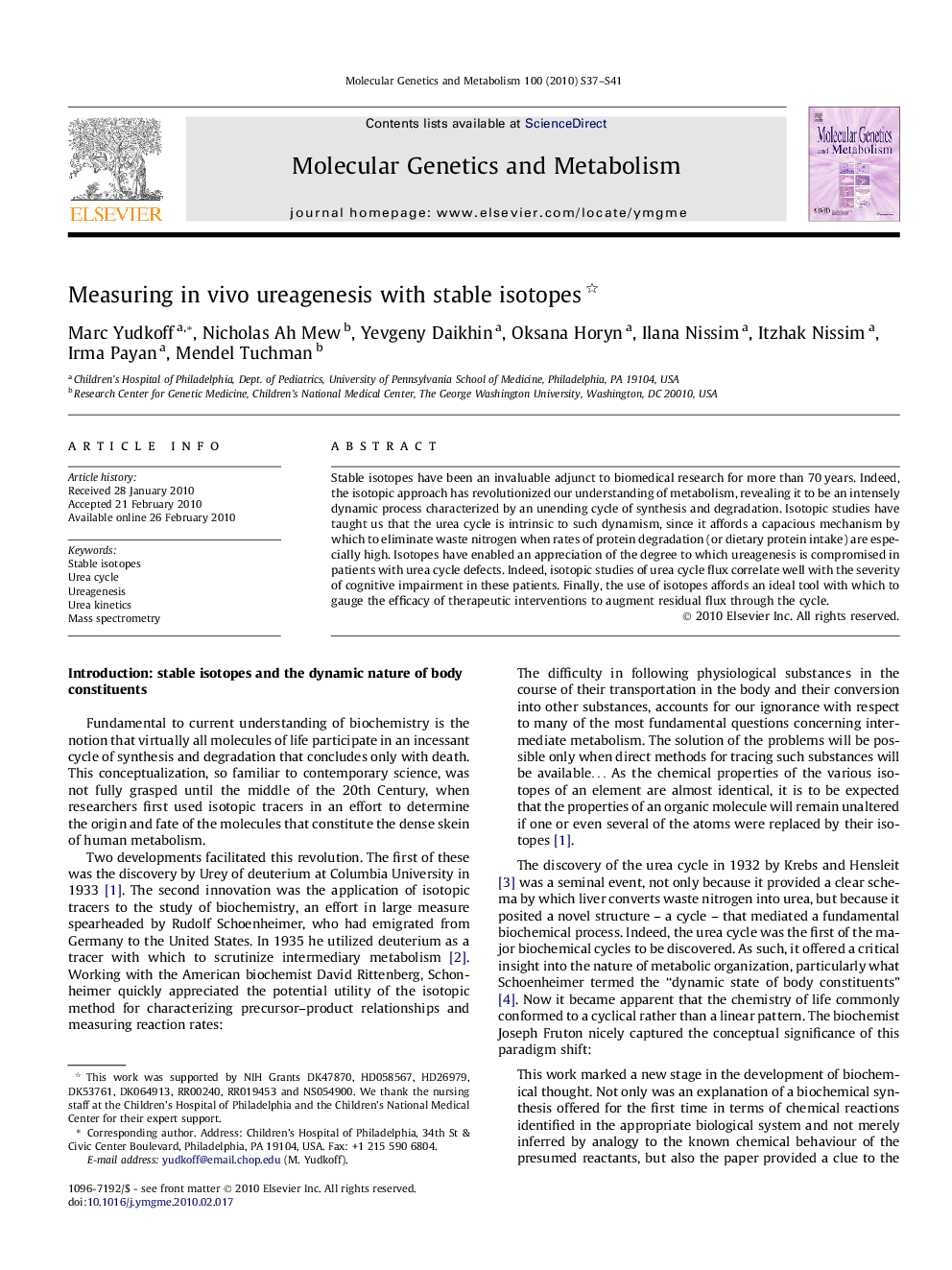| Article ID | Journal | Published Year | Pages | File Type |
|---|---|---|---|---|
| 1999589 | Molecular Genetics and Metabolism | 2010 | 5 Pages |
Stable isotopes have been an invaluable adjunct to biomedical research for more than 70 years. Indeed, the isotopic approach has revolutionized our understanding of metabolism, revealing it to be an intensely dynamic process characterized by an unending cycle of synthesis and degradation. Isotopic studies have taught us that the urea cycle is intrinsic to such dynamism, since it affords a capacious mechanism by which to eliminate waste nitrogen when rates of protein degradation (or dietary protein intake) are especially high. Isotopes have enabled an appreciation of the degree to which ureagenesis is compromised in patients with urea cycle defects. Indeed, isotopic studies of urea cycle flux correlate well with the severity of cognitive impairment in these patients. Finally, the use of isotopes affords an ideal tool with which to gauge the efficacy of therapeutic interventions to augment residual flux through the cycle.
